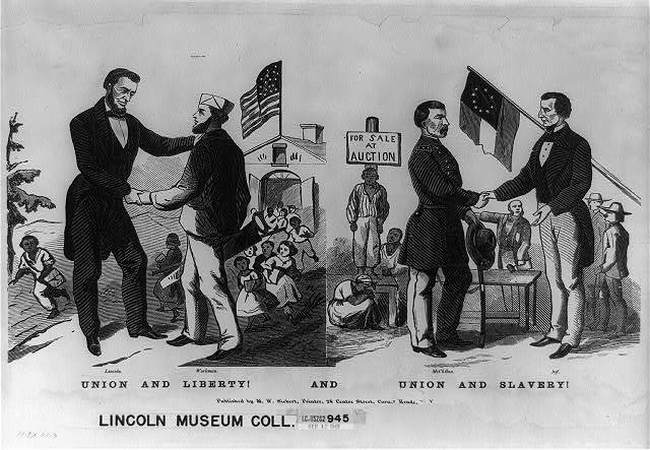
Jim Wallis’ “America’s Original Sin,” with its emphasis on the evils of “white privilege,” is a monument of Leftist conformity and conventional wisdom that sees white racism and bigotry as America’s “original sin,” dating back to before the Civil War and with us still. Perhaps the time has come to reconsider the question of America’s so-called “original sin” by sifting as best we can, without prior certitudes, the evidence before us.
For slavery was not America’s original sin, as the vast majority of lay people, journalists, talking heads, students, teachers, popular writers and historians invariably believe. Neither Howard Zinn’s “A People’s History of the United States” nor Nikole Hannah-Jones’ “1619 Project: A New Origin Story,” two of the most skewed if acclaimed instances of racial analysis, use the term “Original Sin,” but both have no doubt that slavery is the profound and enduring foundational element of the nation’s history.
There is no denying that slavery was a grave and terrible sin, which the nation has attempted to redress through the exercise of law and manifold forms of penance. Well-intentioned expiation, however, has not led to redemption and rectification but to the continuous fracturing of civil life, racial tensions, endless concessions to the black community at the exorbitant expense of the white population, and a destructive sense of white guilt for which the only remedy appears to be more guilt, more concessions, and more self-loathing.
Nor is there any doubt that affirmative action, the DEI syndrome, and a carefully curated narrative of black innocence and white iniquity have come at the modern cost of professional merit, trade competence, historical truth, and political acumen. This has led to the two-term elevation of a “black” president with a sufficient dose of melanin to give him carte blanche. Containing both white and black in equal proportions in his DNA, he was given a historic opportunity to heal the racial fissure, but his “transformative” tenure brought America the corrosive poisons of growing racial animosity, widespread demoralization and near-irreparable decay.
In the last analysis, the so-called civil rights initiatives were laudable in their purpose but have invariably led to exploitation by race-card scammers and activists and the many poorly informed black politicians and their irresponsible white enablers. What has followed is the erosion of civil discourse, the decline of substantive education and the atrophy of national unity.
Without an informed understanding of the social landscape, the politics and economics of our era, and the significant actors of the antebellum period, there can be no prospect of “truth and reconciliation” in the country today, no setting things on a proper foundation of honest knowledge, no restoration of moral clarity, no reclamation of the Revolutionary dream, and no return to what the Founders wanted and imagined. Of course, the famous apothegm in John 8:32, “And ye shall know the truth, and the truth shall make you free,” does not always and necessarily function as claimed. Truth can be met with undiminished ferocity by minds that cannot tolerate reality when it opposes personal commitment to individual prejudice or belief. And truth will often bend the knee to myth or narrative in gestures of untutored fealty. One cannot say, one can only make the effort.
Nevertheless, truth is the only form of atonement—at-one-ment—that counts. And the truth is that slavery, which Paul Johnson in “A History of the American People” calls America’s “organic sin,” was an abominable transgression before God and man, but that it is not alone or even primarily the historical evil which has led to continuing racial turmoil, social divisiveness and the specter or threat of national dissolution.
The repercussions of slavery are with us still as a “sin” that many in the black community — and, of course, the prevaricating Left — will not allow mainstream America to forget despite the mammoth efforts, institutional and cultural, to erase, or at least attenuate, what is generally regarded as an indelible stain on the conscience of the nation. These accountants of the soul themselves forget that nearly a million white Americans lost their lives and nearly two million soldiers and civilians were injured in a war that was ultimately understood to have freed the victims of collective servitude — perhaps the war’s only beneficial consequence. It is a sacrifice they should be grateful for, not resentful of, nor is it one that should be taken advantage of to advance a particular agenda of social and financial indemnification. That rivers of blood were spilled in the fiery crucible of a Civil War, that a nation was torn asunder, and that significant and amending legislation was eventually passed should be reparation enough. No American alive today bears responsibility for chattel slavery, and no American alive today is due recompense.
But deeper than the harm slavery has done to the nation is the legacy of the war itself, namely, the establishment of a monolithic, centralized, managerial, indissoluble State that bears little resemblance to the intent of the Founding Fathers and the republican vision inherent in the Constitution. Alexander Hamilton’s economic plan — a national debt, a government fiat bank, corporate welfare, and a dirigiste State — was an effort to construct a British-like mercantilist system, a rule by elites through the strength of a central Federal government, that the Revolution sought to render null and void.
As John Taylor wrote in 1822 in “Tyranny Unmasked,” “I believe that a loss of independent internal power by our confederated States, and an acquisition of supreme power by the Federal department, or by any branch of it, will substantially…introduce a monarchy, and that the monarchy, however limited, checked, or balanced, would finally become a complete tyranny.” Taylor was largely correct. The Civil War created another and different America from the brave, federalist experiment unprecedented in the muniments of world history — at any rate, since the last days of Ancient Greece, and perhaps not even then.
The Founding Fathers hoped to create a political system responsive to the people; a fair distribution of powers between the three branches of government, first proposed by James Madison at the 1787 Philadelphia Convention and monitored by the core principle of checks and balances; and a meritocratic citizenry, essential to the success of the republican project. “[I]t is admitted there are exceptions to the rule… but [t]here are strong minds in every walk of life,” wrote Alexander Hamilton in Federalist No. 36, “that will rise superior to the disadvantages of situation, and will command the tribute due to their merit.” Whether he was serious or not remains an open question since the Hamilton of the Federalist and the Hamilton of the Convention seem two very different people. But in any event, the war changed all that as presumed eminence of distinction dissolved into the bell curve of staple mediocrity.
The creation of a centralized and overarching government was the bitter harvest of the Civil War. “The proposed Constitution,” wrote Madison in Federalist no. 39, “therefore, is, in strictness, neither a national nor a federal Constitution*, but a composition of both.” In other words, it was a mixture of a central authority and a confederation of sovereign states, contrary to Lincoln’s proleptic assertion in the First Inaugural to the effect that the Union preceded the documents that created it, that is, that the Union was older than the Constitution. This absurdity carried through the Civil War to its aftermath. For the war saw to it that the central authority won out over the confederation of sovereign states, the State having vanquished the states. The expunging of slavery was never the blasting cap for the war.
As Michael Newman puts it in his excellent “The Path to Tyranny,” the Civil War “turned what was once a laissez-faire representative government into a large interventionist government.” The reverberations from that nation-changing event have not died away. The advantages of a dominant government for the purposes of comprehensive administration, international statecraft, fiscal manipulation, and coercive leverage are surely less beneficial than the focus on freedom, local and sectoral authority, independence of judgment, and self-reliance that the Founders envisioned. We are plucking the tainted fruit of a Civil War in which brother slaughtered brother and from which America has never entirely recovered.
What Lincoln accomplished was to provide an alibi for the political hegemon by adorning it with the trappings of a Democracy but not with the attributes of a Republic, that is, of a political entity subject to a Constitution and an official set of laws rather than to the whims of a political leader or the near-limitless power of a voting majority, however engineered. The first instance of the republican spirit in world history did not survive its founding, and we were all impacted by that declension into the indefinite future. The Union was saved, but the Republic was destroyed. And that, barring a miracle, is our fate in the civilized West.
To grasp the nature of America’s original sin, then, we must go back to Abraham Lincoln.
…….
*The concept of federalism is often not clearly understood. It should be noted that “federalism” involves a separation of powers between central and regional governments, with each level having its own authority in specific areas. It is also used to signify the central government itself. One denotation alludes to a system, the other to a central power. Thus, the term “federal” tends to be ambiguous. Capitalization or context is usually necessary to differentiate the two.
Note to the Reader
As a Canadian with no skin in the game but with a deep and abiding interest in American history, I have undertaken the task of writing about the Civil War because I believe not only that the United States of America, but the world itself changed after the War, and Lincoln was instrumental in that change. This article will serve as the Preface to a work-in-progress called, pace Wallis, “America’s Original Sin.” Tentative recommendations for a possible shift in attitudes, in particular regarding a revival of the republican spirit as understood by Donald Trump, will be found therein.
Editor’s Note: Do you enjoy PJ Media’s conservative reporting that takes on the radical left and woke media? Support our work so that we can continue to bring you the truth. Join PJ Media VIP and use the promo code FIGHT to get 60% off your VIP membership!
















